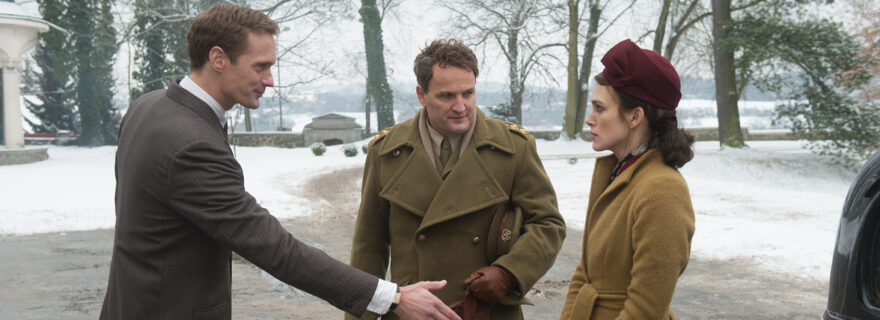The Aftermath
Movie Rating:
1
The Aftermath reflects on what could have been a fascinating period, the window following the Second World War, where the challenges of building peace proved to be even more morally complicated than the seemingly simple process of army versus army. Instead, the film settles for being a dreary, simplistic, boring romantic drama.
Set in Hamburg just after the close of war, we witness a British invasion a decade and a half before the Beatles and other Liverpudlians would call the port town home. The ruins of British bombardment scar the area, and bodies remain buried in the rubble. Placed in command, Lewis Morgan (Jason Clarke) is tasked with testing locals as part of a de-Nazification process and attempting as best as possible to rebuild civil society. He and his wife, Rachael (Keira Knightley), settle into a grand home formerly owned by an architect.
The Bauhaus furniture and beautiful Steinway piano occupy the same room where a stained wall shows where a framed picture once hung. This of course is the mark of the former Führer, whose visage was prominent in almost all German households. This undercurrent of what transpired, placed against the normalcy of the cleaned-up environment, could easily provide rich introspection about how to move on from such horrors.
The tall, attractive housekeeper and widower Stefan (Alexander Skarsgård) and his daughter Heike (Anna Katharina Schimrigk) greet the new residents with mixed feelings, vacating their previous rooms to live in the attic. While Rachel mourns her son lost during the Blitz and harbors anti-German feelings, her husband is often off making things work for the locals.
Surprising only the most vacuous, Rachel’s hatred soon turns to affection for Stefan, and the two engage in a bout of forbidden love. The awkwardness and obviousness of the whole affair is buttressed by a half-baked subplot involving The 88, a group of underground individuals still loyal to Hitler looking to make a show against their new occupiers.
The toothless subplot is made maudlin by the dreary romance between the two characters. Skarsgård is difficult to not be swayed by, but Knightely’s transformation from grieving mother to lustful scorned housewife is difficult to stomach, let alone her further decisions that seem equally under-planned. It’s all so rote, so convenient and bloodless that the setting for which the film draws much of its power is almost insultingly downplayed, using only echoes of the war to inject some sort of danger to the otherwise banal tale.
The Aftermath could have taken the anxiousness of forbidden love and counterpointed it with the ramifications of a global war. Failing that, we’re left with something that may have played well as a trifle on British television.



